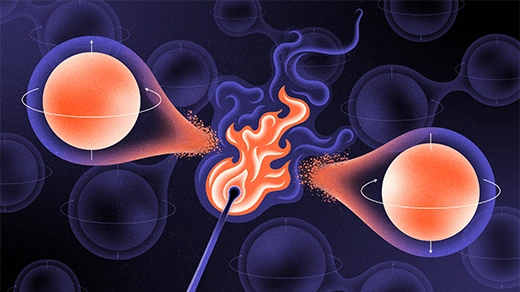What's up in
Quantum information theory
Latest Articles
Particle Physicists Detect ‘Magic’ at the Large Hadron Collider
The supercollider is now being used to explore quantum phenomena, including a “magic” form of quantum entanglement.
A Thermometer for Measuring Quantumness
“Anomalous” heat flow, which at first appears to violate the second law of thermodynamics, gives physicists a way to detect quantum entanglement without destroying it.
Quantum Scientists Have Built a New Math of Cryptography
In theory, quantum physics can bypass the hard mathematical problems at the root of modern encryption. A new proof shows how.
Quantum Computers Cross Critical Error Threshold
In a first, researchers have shown that adding more “qubits” to a quantum computer can make it more resilient. It’s an essential step on the long road to practical applications.
Computer Scientists Prove That Heat Destroys Quantum Entanglement
While devising a new quantum algorithm, four researchers accidentally established a hard limit on entanglement.
How Does Math Keep Secrets?
Cryptography is the thread that connects Julius Caesar, World War II and quantum computing, and it now lies under nearly every part of modern life. In this week’s episode, computer scientist Boaz Barak and co-host Janna Levin discuss the past and future of secrecy.
Cryptographers Discover a New Foundation for Quantum Secrecy
Researchers have proved that secure quantum encryption is possible in a world without hard problems.
The Best Qubits for Quantum Computing Might Just Be Atoms
In the search for the most scalable hardware to use for quantum computers, qubits made of individual atoms are having a breakout moment.
What Is Quantum Teleportation?
Teleporting people through space is still science fiction. But quantum teleportation is dramatically different and entirely real. In this episode, Janna Levin interviews the theoretical physicist John Preskill about teleporting bits and the promise of quantum technology.








